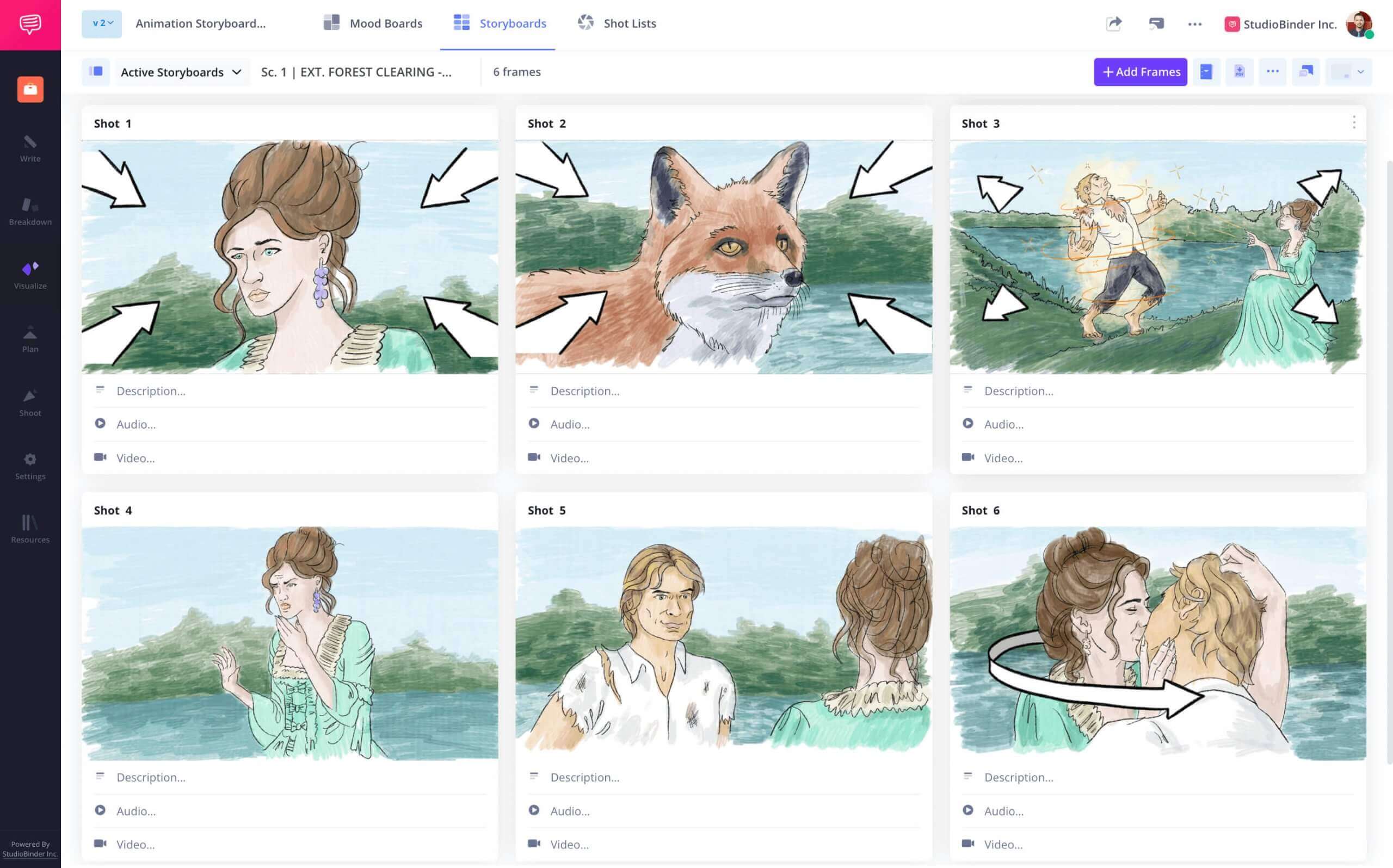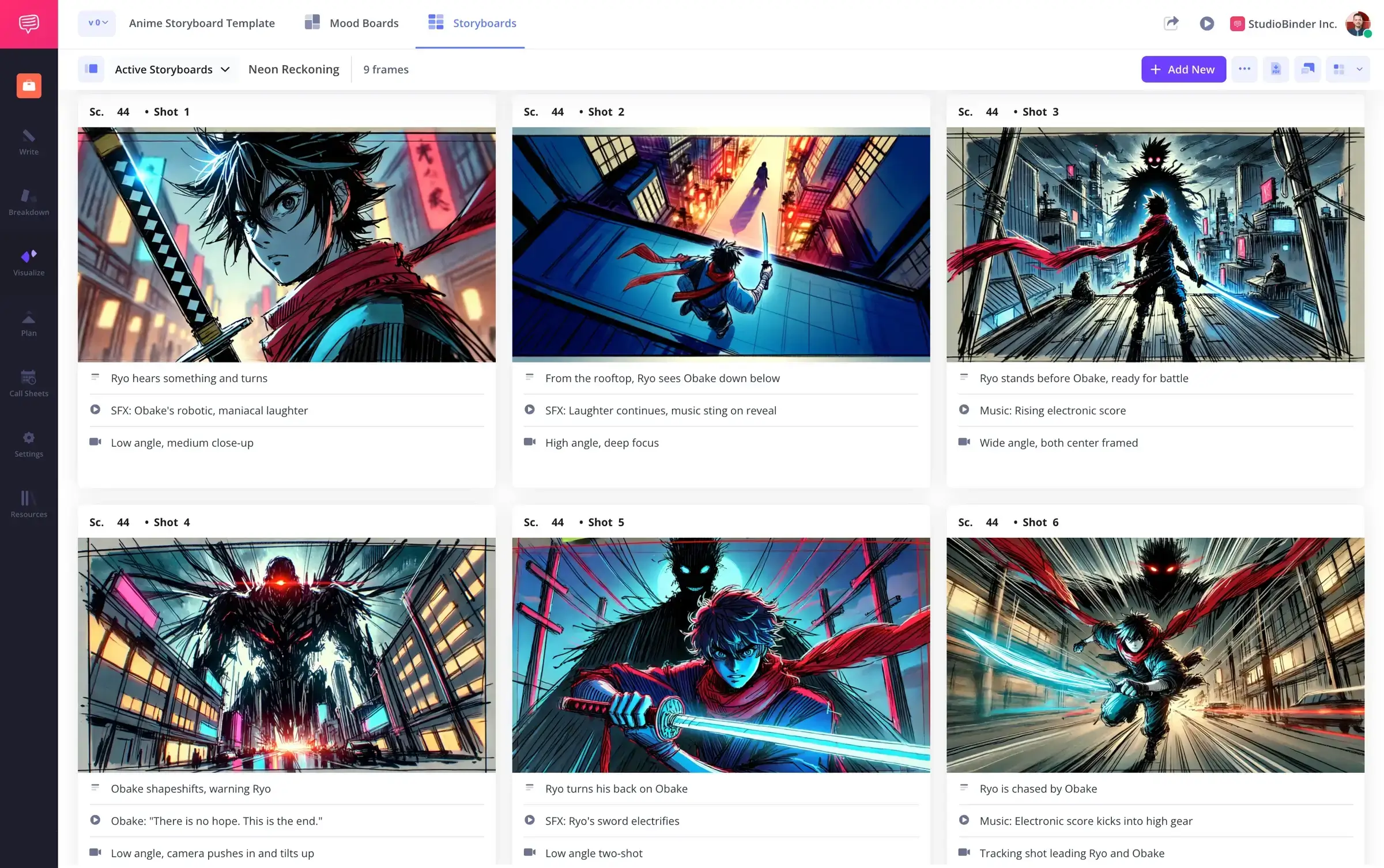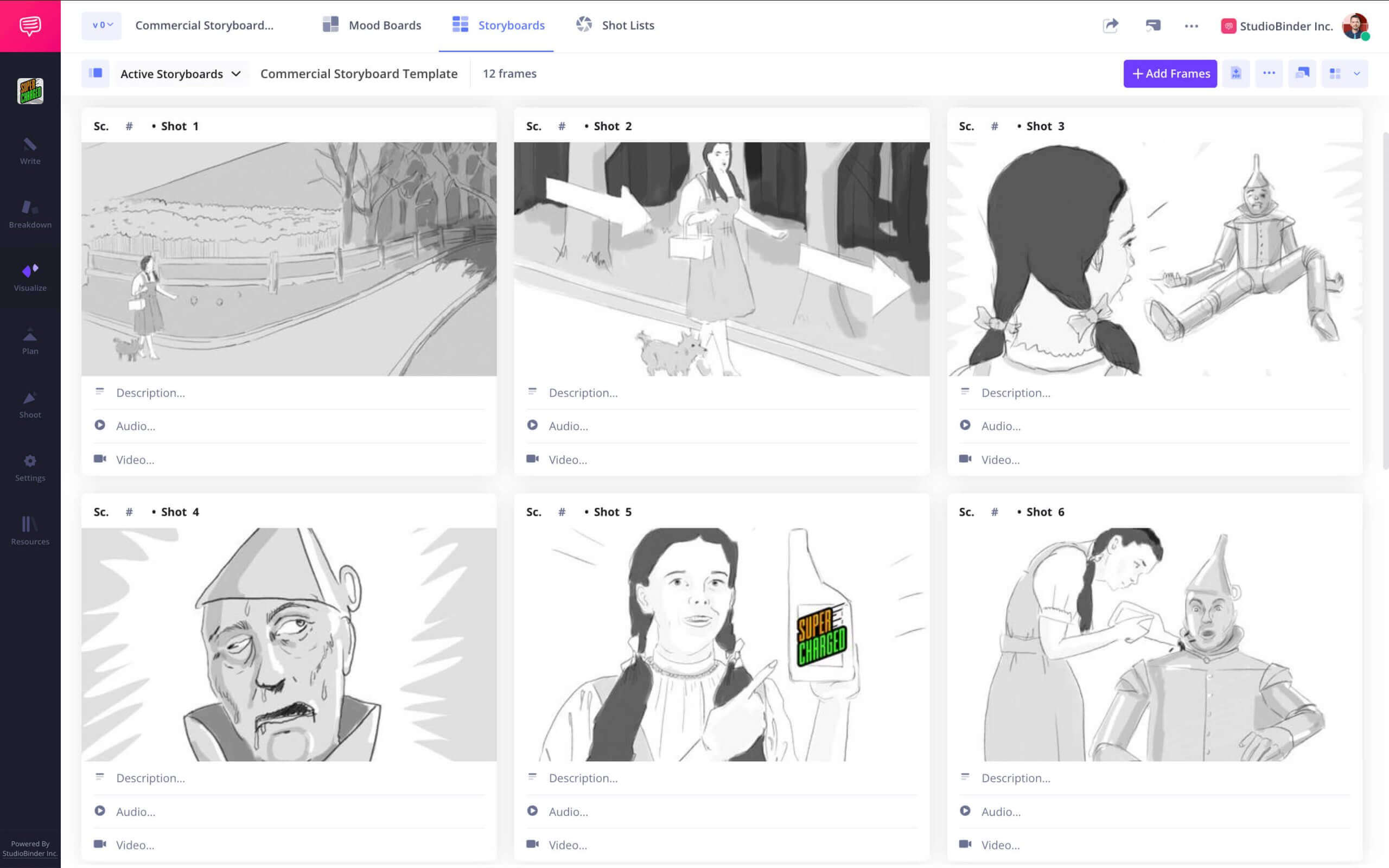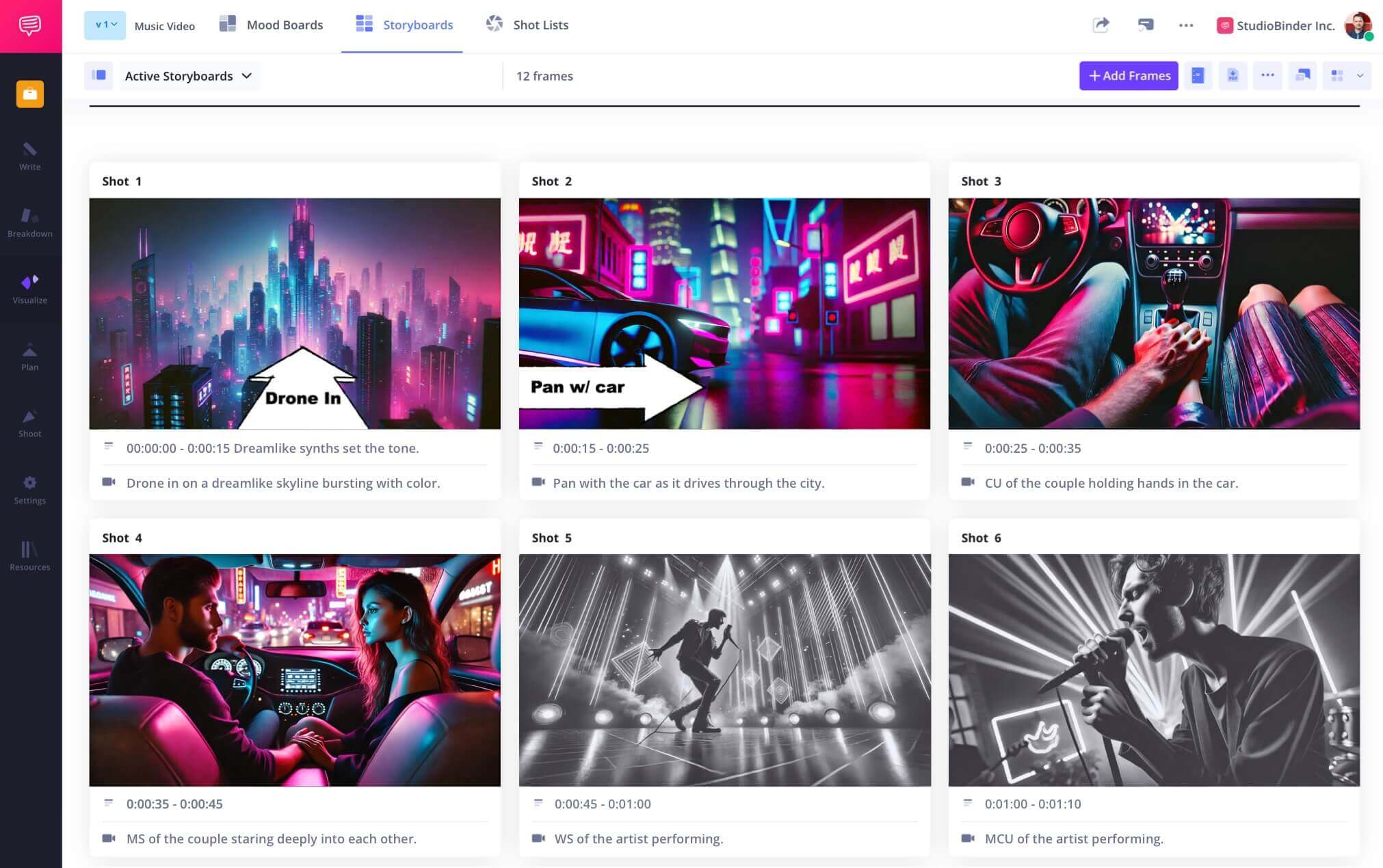Storyboarding Tools
Visualize your idea
StudioBinder’s storyboarding tools make it easy to create, organize, and share visual plans for every scene.
Storyboard Builder
Plan with visual clarity
StudioBinder’s storyboarding tools are connected to scriptwriting, shot listing, scheduling, and call sheets in one collaborative platform. It’s the all-in-one storyboarding tool for filmmakers, agencies, and production teams.
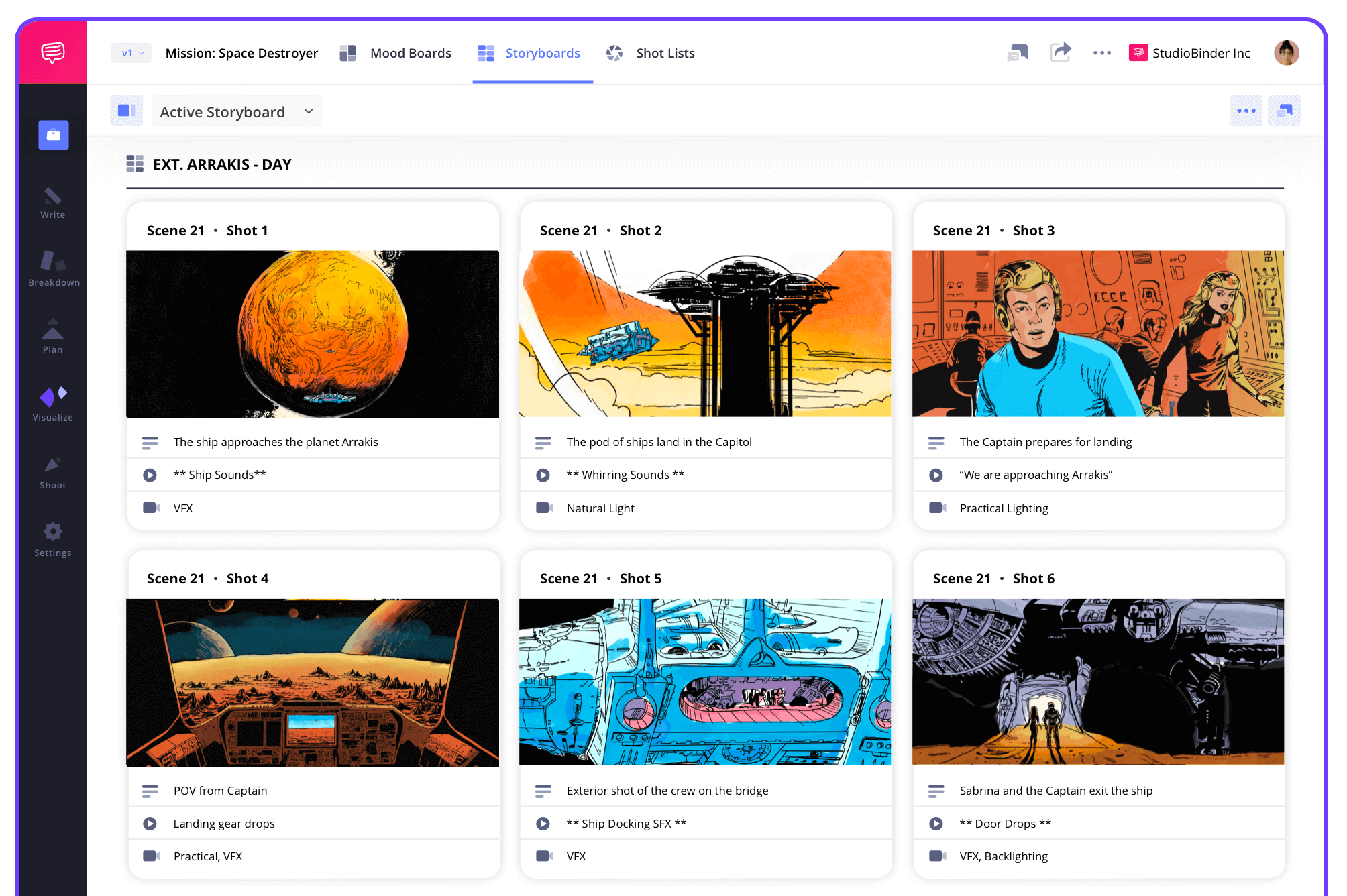
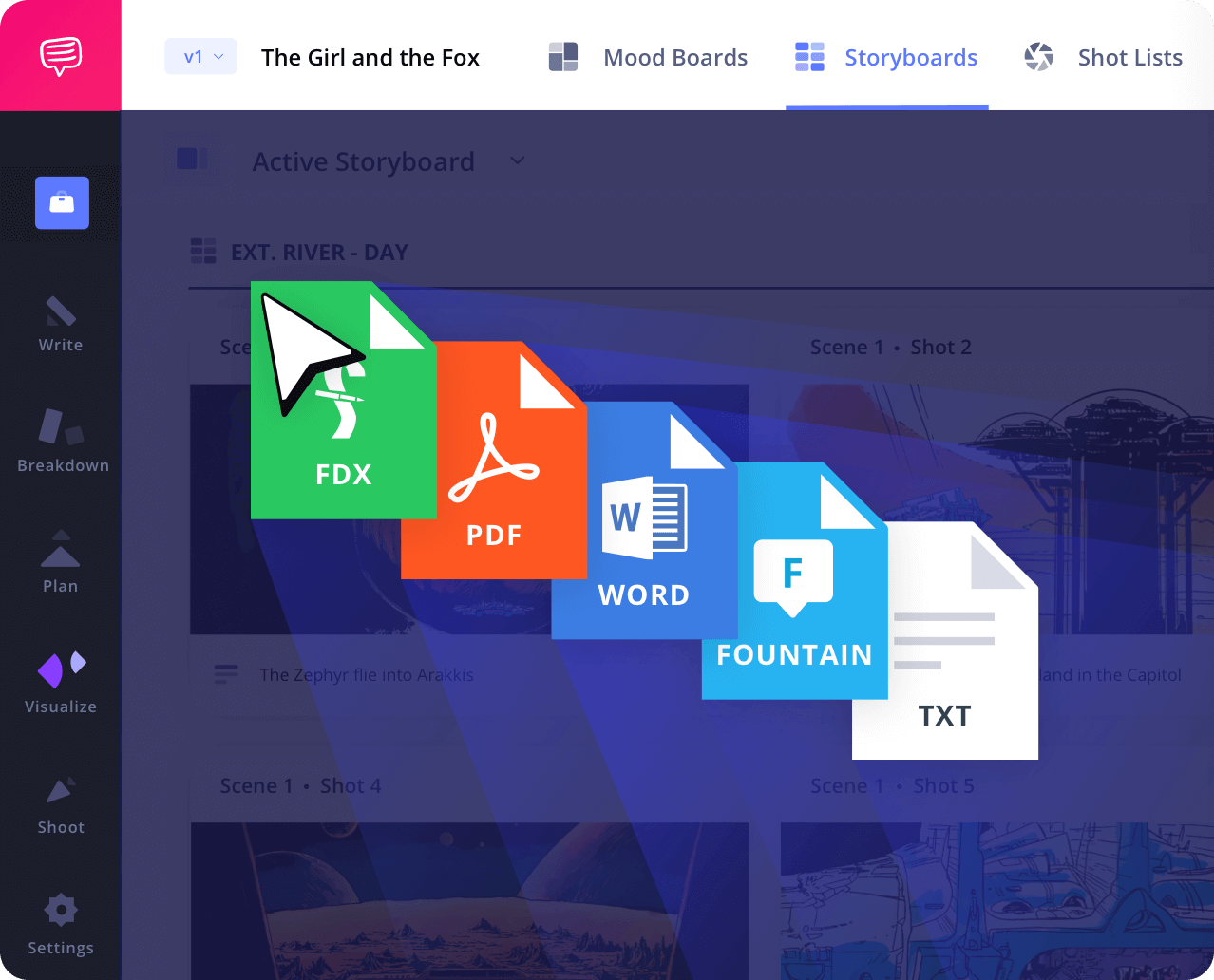
Script to Storyboard
Turn scripts into scenes
Write your script directly in StudioBinder or import from your favorite software. Every scene automatically connects to a storyboard panel so you can start visualizing faster.
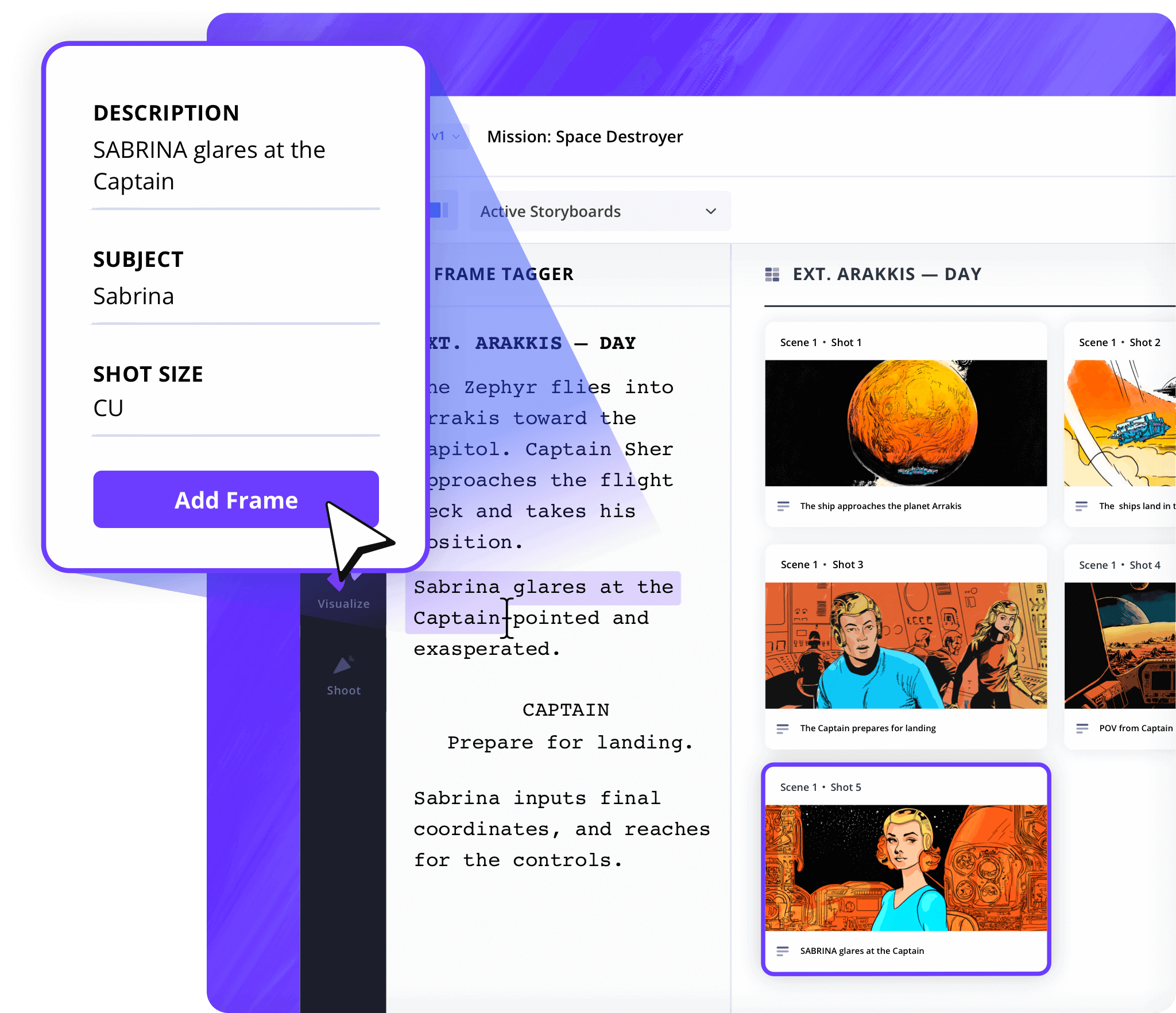
Shot Tagger
Create boards from your script
Highlight lines of action or dialogue to instantly generate storyboard frames. The built-in storyboard creator tool brings your vision to life, frame by frame.

Shot Specs
Customize your layout
Choose from a curated menu of shot specs to describe camera setups, movements, framing, and more. These tools for storyboarding keep your visuals consistent.
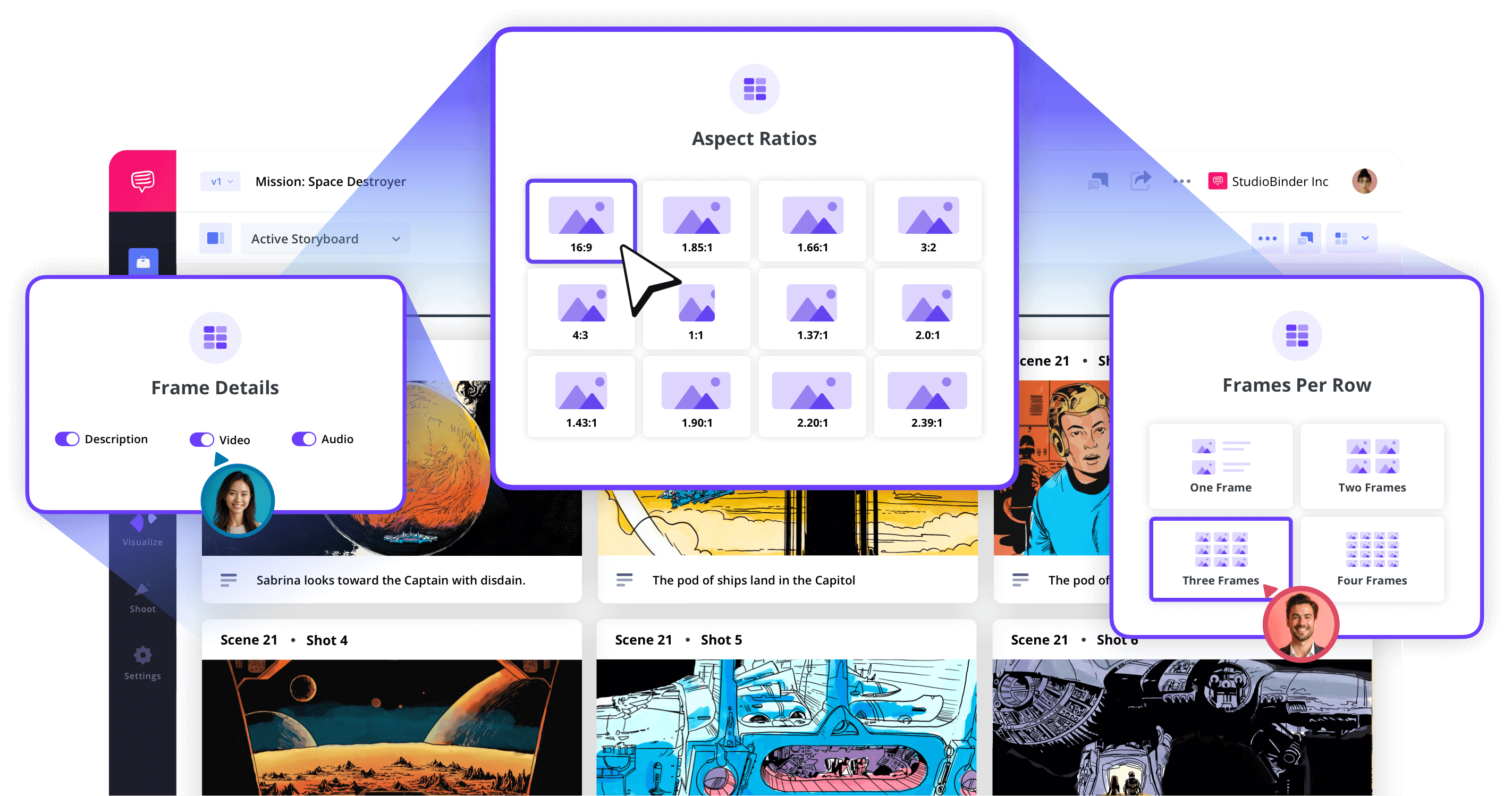
Image Editor
Add and edit images
Upload sketches or reference shots and enhance them with color tools, text, arrows, and layout edits. Whether you’re sketching by hand or working with AI storyboard generation tools, StudioBinder can enhance your workflow.
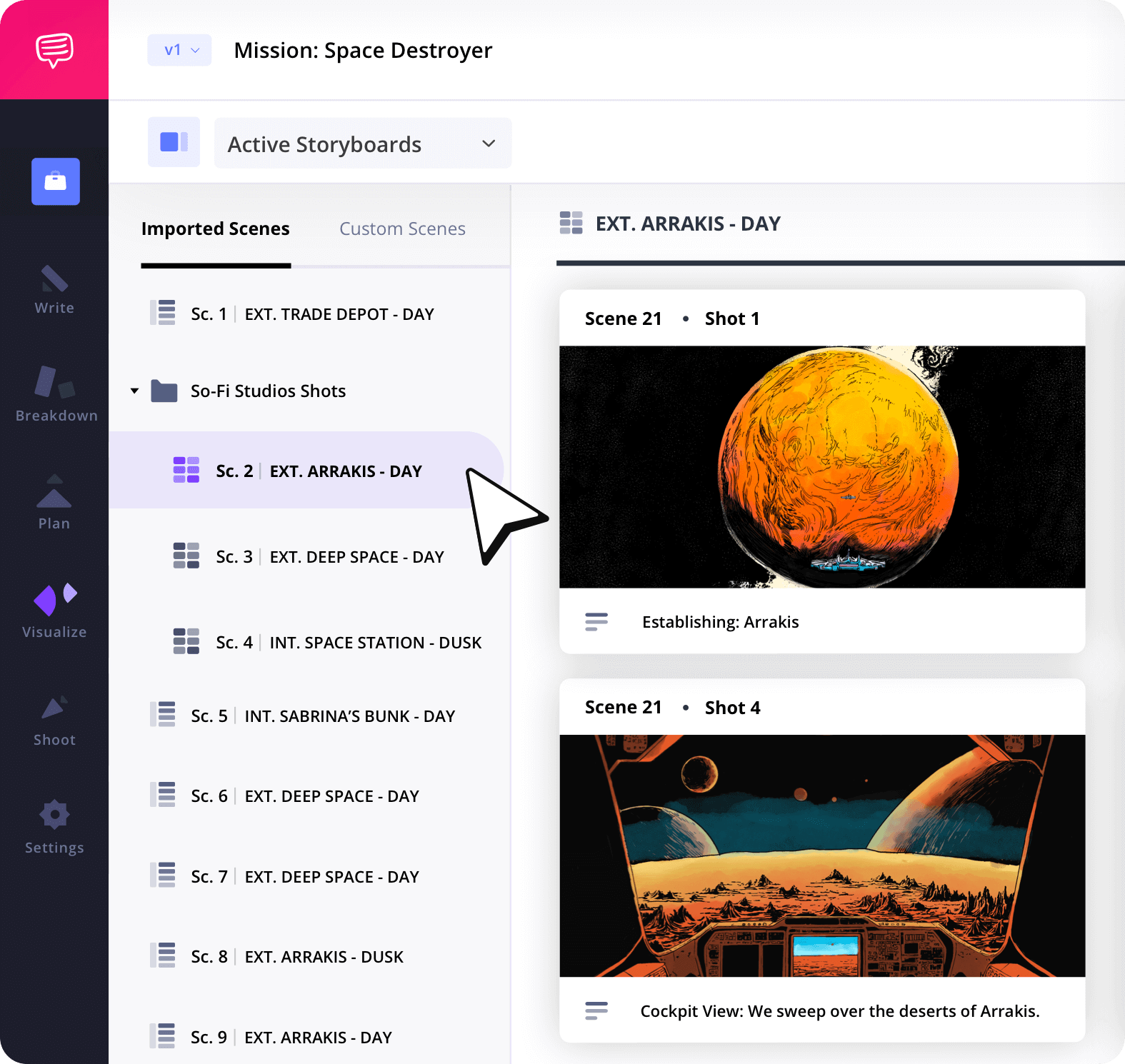
Storyboard Groups
Organize storyboards easier
Sort storyboard frames into groups by scene, shoot day, location, or project phase. These organizational tools help streamline even the most complex productions.
Collaborate
Work as a team
Invite team members to leave feedback, upload assets, and comment on each frame. Whether you're a solo director or part of a creative collective, StudioBinder keeps everyone on your roster aligned.
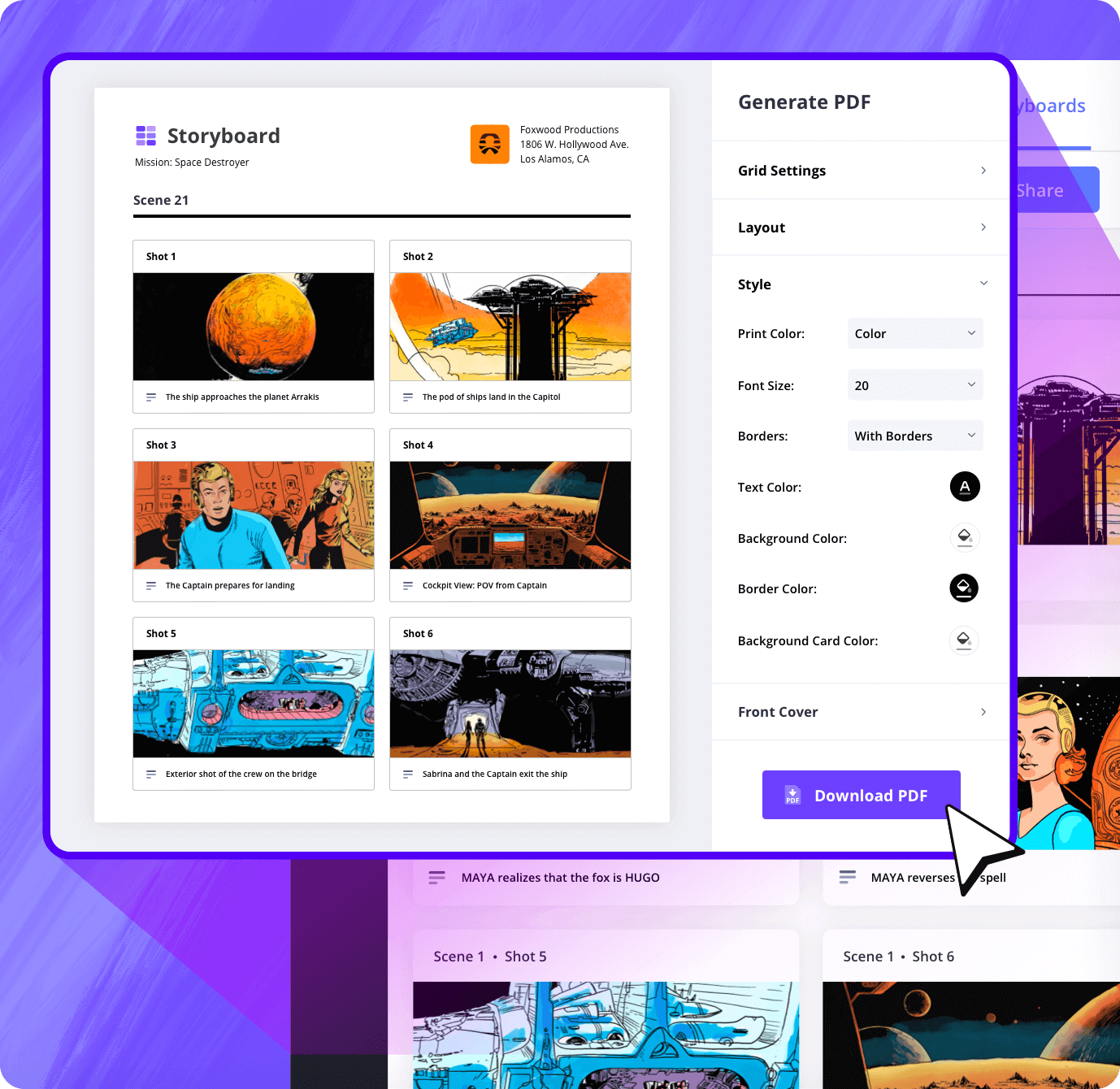
Customization
Make it yours
Export your storyboard as a polished PDF or customize layout, margins, covers, and more. Design the perfect presentation for your clients or cast and crew.
Sharing
Send and present instantly
Create view-only links or invite your team to comment. With our online storyboarding tool, feedback and approvals happen in real time and from anywhere so the productivity never stops.
Explore Features
More storyboard features
Aspect Ratios
Choose an aspect ratio that best suits your project.
Column Layouts
Adjust how many columns your storyboard will have.
Image Library
Reuse storyboard panels from previous projects.
Shot Numbering
Choose between digits, letters, or a custom shot numbering.
Storyboard Archive
Archive old storyboards to keep an accessible history.
Color-Code Shots
Label or call out specialty shots with colors.
Frequently Asked Questions
Your questions, answered
A storyboard tool typically refers to software that assists in the creation of storyboards. This could be as simple as a digital storyboard template or multi-faceted storyboard software like StudioBinder.
Yes, storyboards are used all the time in film, TV, commercials, music videos, etc. The ability to use storyboard tools like StudioBinder has evolved, so the old-fashioned "pen and paper" method might not be as common. But no matter the method, the process of visualizing projects after the script and before the shoot will never go away.
Traditionally, storyboards are created by a person called a Storyboard Artist. Working closely with the Director and DP, the Storyboard Artist will bring the vision to life. Naturally, being able to hire a Storyboard Artist comes down to budget, so they are most often employed on larger projects. In those cases, the task usually falls to the Director.
The average salary for a Storyboard Artist in the US is currently $90,000/year, which would go up or down depending on their level of experience.
Storyboarding tools can be as simple as "pen and paper," or as advanced as generative AI software. And let's not forget the most important storyboarding tool of all — your imagination.
Finding the best tool for storyboarding has a lot to do with personal preference. Some people prefer the tangibility of hand-drawn storyboards because they can achieve exactly what they're looking for. Other people might not have the skills or the patience to draw the storyboard themselves, so they rely on more advanced methods like AI storyboard generation tools.
There are three basic types of storyboards in the various fields of visual production like film, music videos, commercials, animation, etc. The type of storyboard you use might fit better with a specific medium but the choice is really up to you.
Traditional Storyboards — a 2D, "pen and paper" rendering drawn by hand.
Digital Storyboards — using an online storyboarding tool to upload images or use AI tools to generate the images.
Animatic Storyboard — used in animation, this is an animated version of the traditional storyboard, including dialogue, music, and sound effects.
Customers
Trusted by the Best
Modernizing production workflows at renowned studios worldwide.
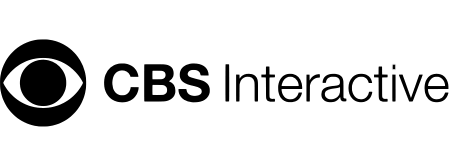



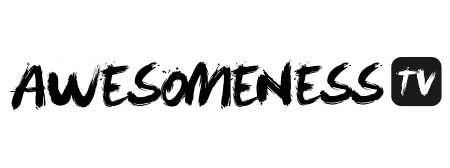





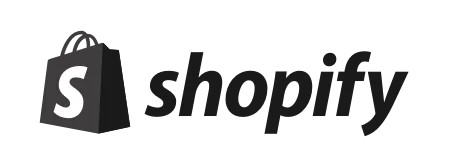

Today’s productions use StudioBinder to streamline their process, and collaborate on better content together.
"I can be a part of the conversation and see when someone finishes a task."
Watch Testimonial ➜
"StudioBinder makes pre-production that much quicker for out team."
Watch Testimonial ➜
"Call sheet confirmations have instantly made our life that much easier."
Watch Testimonial ➜
